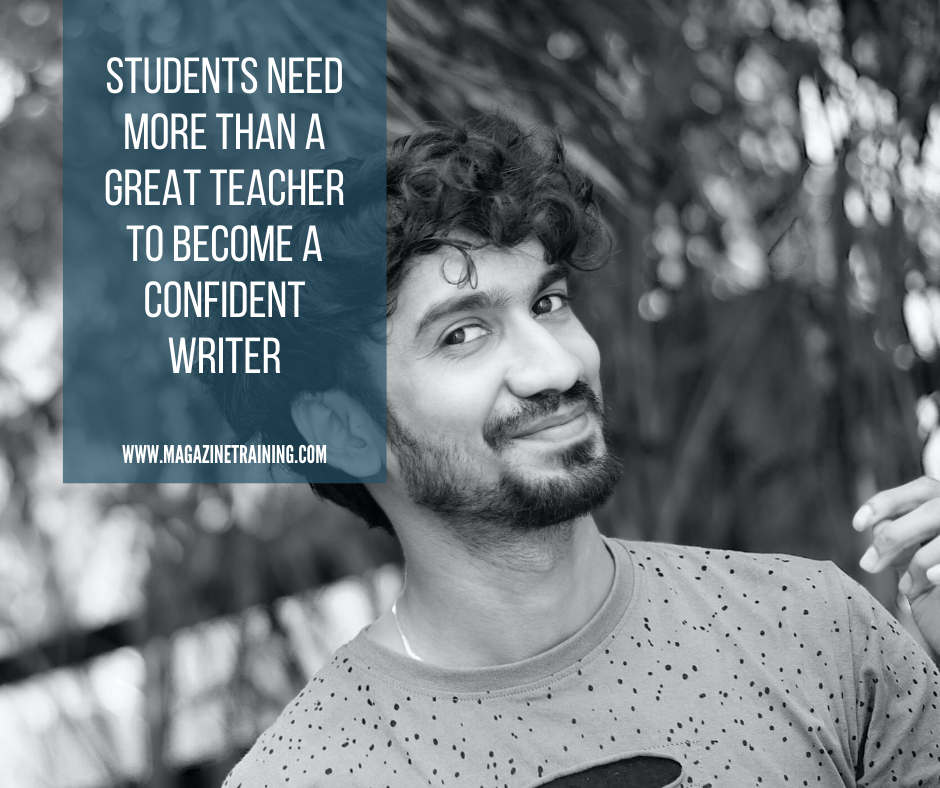
If you have taught an aspiring writer that had a passion for writing, but didn’t have the knack yet, you might already know that your knowledge (though necessary) is not all you need to help the student. In my experience of teaching teenagers and young adults, I have learned that my curriculum, the facts I know, and my past teaching experience, are not enough to train a young writer. Why is that so? Because every student needs more than a great teacher to become a confident writer.
Here is what my students have taught me:
Always ask questions
You’ll be surprised by their intelligence when you question them. Typically, I teach one student for an hour. After 40-minutes of grammar, quick tips on writing, and a simple paragraph writing, I always spend the last 20 minutes in open interaction. Once I asked my 15-year-old student what topic he would pick if he were given a chance to talk to a room full of young people.
He replied, “Dream Big!”
I was so impressed I shot back, “And what would you talk about if the room was filled with middle-aged folks?”
In less than 30-seconds, with a grin, he said, “How to look young?”
I was flabbergasted, seeing his creativity. That afternoon, I didn’t have to decide on the topic of his homework because I chose one from his answer. His confidence was boosted, and I felt accomplished as a teacher.
Encourage them
Before offering encouraging words it is important to understand your student. While my teenage students see appreciation as an encouragement, the young adults feel encouraged when I assign a more difficult task. This doesn’t mean you will always be encouraging without giving them constructive criticism, but it is important to keep in mind that when encouragement outweighs the correction, students will be able to handle criticisms without losing their confidence to write.
Believe in them
There is nothing more motivating than knowing that someone believes in you. If you are the teacher you are a role model for your student. What you say can either break them down or build them up. Apart from telling them that I believe in them, I also write uplifting letters when I get an opportunity. This happens usually on their birthdays. In my note, I always make a point to let them know that it’s a joy to teach them. Knowing they are being celebrated gives them the appetite to learn from you.
End it on a sweet note
You won’t tutor a student forever. When it’s time for to say goodbye, say or write something nice to them. I love to write, so I wrote to every student in my last class. One of my young adult students, who had to discontinue because he was relocating, was so moved by my farewell letter that he said, “No one has written such a note to me before. I feel capable.” I assured him that he is gifted as I left their house. Sticking his head out through the ajar front door, he waved goodbye as his mom opened the elevator for me.
Looking back, I feel fulfilled by the two years of private tutoring I did because of the knowledge exchange during classes. It was beyond enriching and given a chance, I would do it again.
I can’t promise that tutoring aspiring writers won’t be challenging, but I can say that it will be rewarding if you are open to learning from them as you teach.
By Nzandi Murry, Expressions, India
Related posts
Magazine Training International’s mission is to encourage, strengthen, and provide training and resources to Christian magazine publishers as they seek to build the church and reach their societies for Christ.

